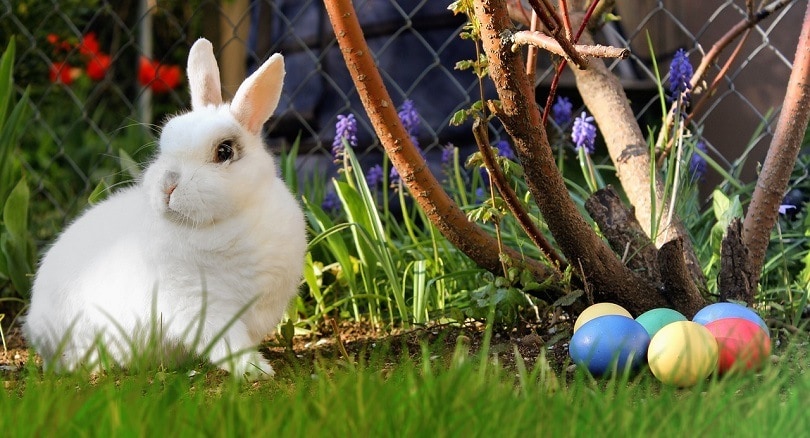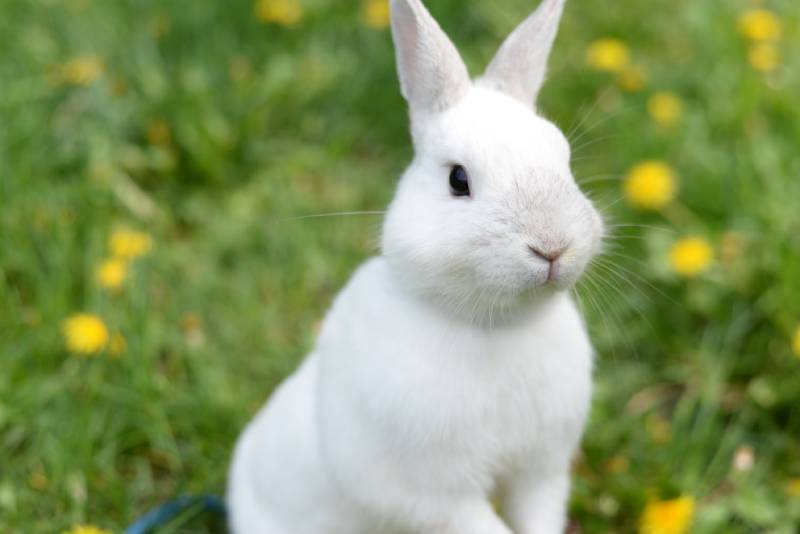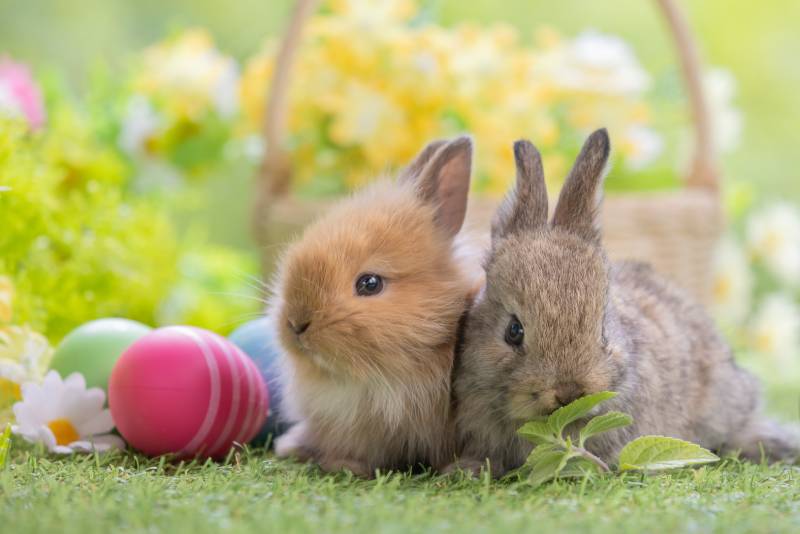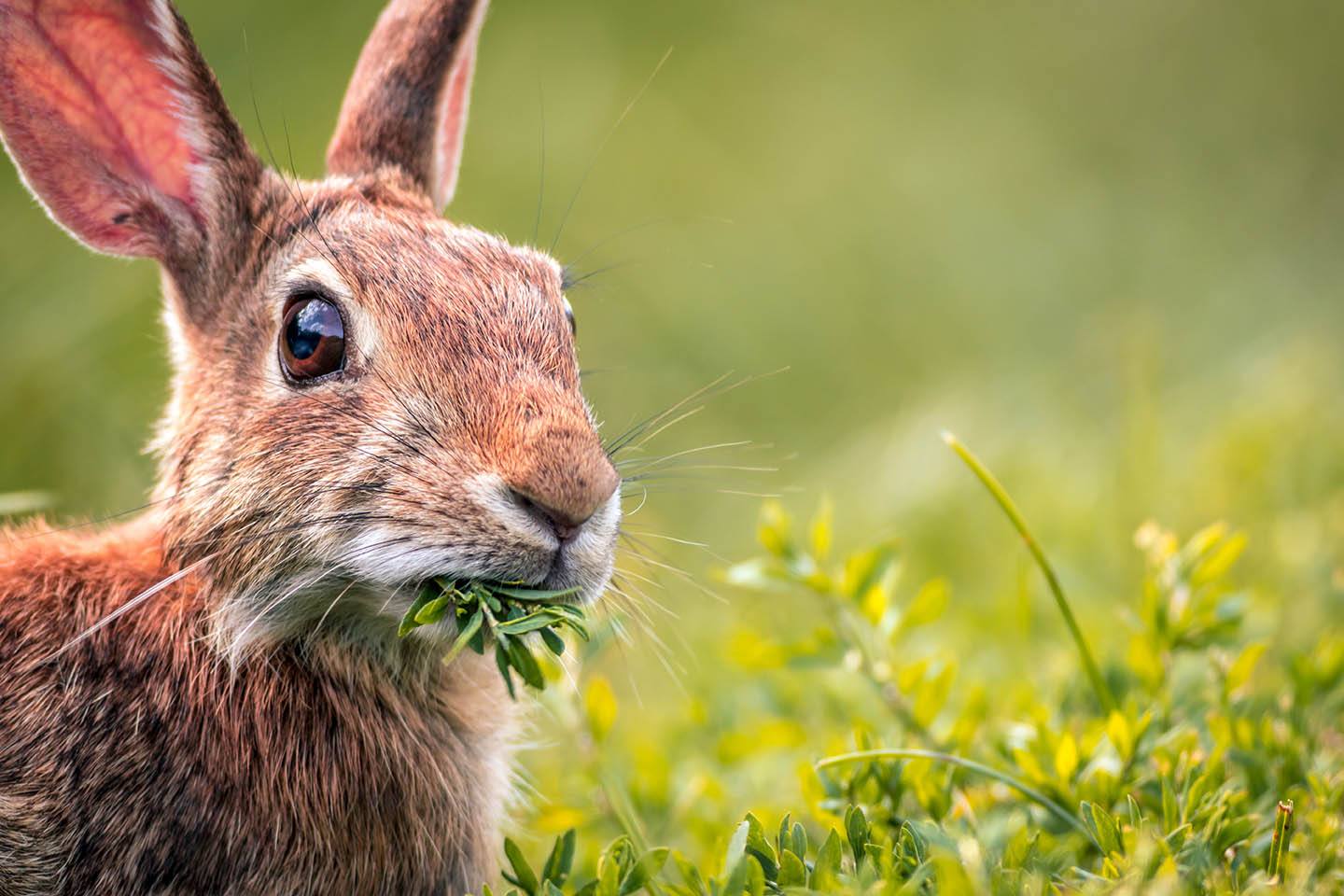
Everyone loves Easter and bunnies. However, have you ever wondered why rabbits are associated with Easter? What’s the history of rabbits and religion? Rabbits have long been a religious symbol in some cultures and are even known as symbols of fertility.
Join us as we delve into Easter and what rabbits mean to it as a holiday.
How did Rabbits Become Associated with Easter?
Rabbits have long been a religious symbol of fertility, but fertility has nothing to do with Easter. How did rabbits become part of Easter? Perhaps it’s connected to the time Easter takes place. Spring is seen as a time of rebirth; flowers bloom, the sun shines, many animals enter the mating season, and, according to North European folklore, the witches leave.
According to Swedish folklore, all the witches fly to Blåkulla, where they would dance and feast with the devil. The Germans held large bonfires to scare the witches away, but most importantly, the English ate hares. It was believed that witches would commonly take the form of a hare to cause trouble, and the threat of being eaten was enough to keep them at bay.
We’ve connected the time of year Easter occurs to rabbits, but we still don’t know how rabbits became associated with Easter specifically. Interestingly, the answer doesn’t lay within Christianity, but instead, the religions and customs it replaced.
The History of Rabbits and Religion

To understand how rabbits relate to Easter, we have to go back further than the holiday itself. Where the origins of the Easter Bunny lie aren’t known, but researchers have made educated guesses.
Neolithic Times
One bit of history that may help shed light on the Easter Bunny’s beginnings comes from the Neolithic era. It’s been discovered that hares were given ritual burials alongside humans in Neolithic Europe, and these Neolithic humans most likely saw hares as symbols of rebirth. The burials continued into the Iron Age.
Ancient Rome and Greece
We have yet more evidence of rabbits being seen as religious symbols from ancient Rome. In 51 B.C., Julius Caesar mentioned that the Celts in Britain, or Britannia as he would’ve known it, didn’t eat hares for religious reasons. Even the ancient Greeks viewed rabbits as semi-religious figures and as sacred to the goddess Aphrodite.

The Importance of Fertility
So, the obvious question is, what drove these cultures to view the rabbit as a sacred figure? The answer is fertility. Until relatively recently in human history, fertility was ridiculously important. Having as many kids as possible was seen as necessary, and for these civilizations to continue, it was. It’s easy to see why rabbits were associated with fertility, with their ability to breed rapidly.
Rabbits have an extremely short gestation period, between 28 and 31 days, and can become pregnant again just hours after giving birth. This allows them to have multiple litters a year, and when the litters contain up to 12 kittens, the rabbit population starts snowballing.

Pagan Beliefs
Germans and English residents living before the birth of Christ worshipped a pantheon of gods, one of which was the goddess Eostre. What we know as April, they called Eostre Month. A festival was held in Eostre’s honor to herald the beginning of spring, and as you’ve probably guessed, Eostre’s main symbol was a white rabbit.
The Catholic Church’s main concern at the time was conversion. Christianity spread across Europe like wildfire, and they didn’t want it to slow down. The church had discovered long ago that it’s easier to convert people when you let them keep their holidays.
The festival for Eostre was merged with the story of Jesus’ resurrection, and the rabbits were a holdover from the previous god. Easter’s influence from Eostre becomes even more clear when you realize only Germany and English-speaking countries refer to the holiday as “Easter,” with most other countries referring to it with names that descend from the Jewish holiday “Passover.”
Why Does the Easter Bunny Lay Eggs?
Perhaps the most pressing question about Easter is why the Easter Bunny lays eggs. The answer is most likely that eggs were viewed as another symbol of fertility. The earliest writing of children hunting easter eggs comes from 16th century Germany, but the earliest mention of decorated eggs was from 1209 when King Edward of England ordered 450 eggs covered in golden foil as gifts for members of his court.
The American tradition of the Easter bunny bringing eggs originated with German immigrants. 18th-century German immigrants brought their tradition of the Osterhase, which was a mythical egg-laying hare that would leave its eggs in nests made by children. Eventually, the story changed so that the Easter Bunny merely delivered these eggs instead of laying them himself, and the nests changed to baskets that the children were not expected to craft themselves.
Final Thoughts
As you can see, Easter and rabbits have a storied history. Like many Christian holidays, Easter has roots in pagan beliefs. Since rabbits are prolific breeders, their fertility has been appreciated and celebrated by several cultures. Although the ancient Eostre festival honored a pagan goddess represented by a white rabbit, the holiday became associated with the resurrection of Jesus when Christianity became more dominant in Europe.
Featured Image Credit: geralt, Pixabay







